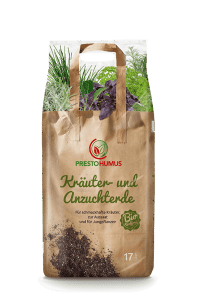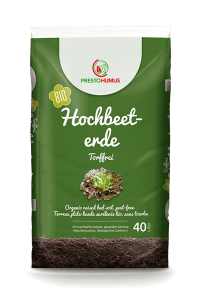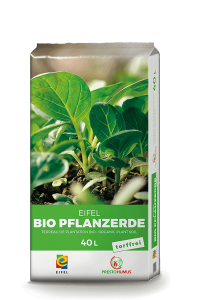No matter if you prefer fish or meat dishes, pizza, pasta or mixed salad – fresh herbs enrich any dish as for its taste and flavour. The “fresh green” can easily be cultivated in pots on the windowsill, in tubs on the terrace or balcony and in the garden. Well-known herbs such as (garden) parsley or chives are meanwhile to be found in almost every household. Basil, oregano and thyme are often a significantly basic part of any list of ingredients.
Herb growing – THE fresh boost on your balcony!
Common herbs – collected from the balcony …
Whether on the windowsill, in beds or on the balcony: herbs are providing a “green flair”, they are giving “green enrichment” to any menu. The following types of herbs are very suitable for cultivation:
The herb has the typical aroma of fresh garlic, yet the consumer is spared the unpleasant odor after consumption. Wild garlic is said to have many healing powers. It has an antibiotic effect and strengthens the body's defenses. Wild garlic is a seasonal product and only available in spring and early summer. This herb should be used as fresh as possible to preserve its delicious aroma.
Basil is originally from India, but is now a typically southern European plant. In Italian cuisine, this herb is mainly used for pizza, pasta and sauces. The most famous classic is tomato with mozzarella and fresh basil. A special specialty is pesto, which is prepared from the leaves. Basil is processed as fresh as possible, the leaves are only roughly crushed. When cooking, the herb quickly loses its incomparable aroma. Therefore basil should be added to the pizza just before serving.
656/5000 Chervil is similar in aroma to parsley, but not so intense and therefore useful for many soups. Chervil is part of the well-known Italian "Salsa Verde", the Frankfurt "Green Sauce" and the "Fines Herbes" mixture. The cabbage is added to salads, herbed quark and butter and goes well with egg and potato dishes. Chervil should only be used fresh or cooked briefly, otherwise color and aroma will be destroyed. By its stimulating effect on the digestive organs and the kidneys chervil purifies blood. In addition to a lot of essential oil, the leaves also contain vitamin A and C as well as magnesium and iron.
621/5000 Parsley is now native to all of Europe and one of the best known culinary herbs. The leaves are finely chopped over potatoes, herb quark, soups and salads very decorative. Also fish, cooked meat, egg dishes and sauces are refined with parsley, which should be used as fresh as possible. There are several varieties: parsley with curly and smooth leaves and the root parsley. The aroma of smooth parsley is much more intense, while the curly version is more decorative. Parsley is rich in vitamins A, B1, B2, C and E and contains magnesium as well as iron.
578/5000 The intense, amber-like fragrance that no other kitchen herb makes makes rosemary a coveted spice for rustic meat dishes and grilled marinades. The whole shoots are used and removed before serving the food. Lamb meat without rosemary is hard to imagine in Italian cuisine. But he is also popular with beer brewing, in wine, in baked goods, jellies and sodas. Rosemary harmonizes ideally with thyme. Its essential oil has a balancing effect on nerves and circulation, helps with exhaustion, stomach problems and headaches.
Chives grow throughout Europe and are hardy. As a kitchen herb, only the above-ground tube leaves are harvested. For use, the tubes are cut to the bottom with a sharp knife and then chopped into fine rolls. Chives are best used fresh, because when heated, the aroma is destroyed. It is particularly suitable for herbal quark, salads, soups, vegetable platters and egg dishes. The well-known taste of chives is created by the contained leek oils. It contains vitamin C and relatively much vitamin A.
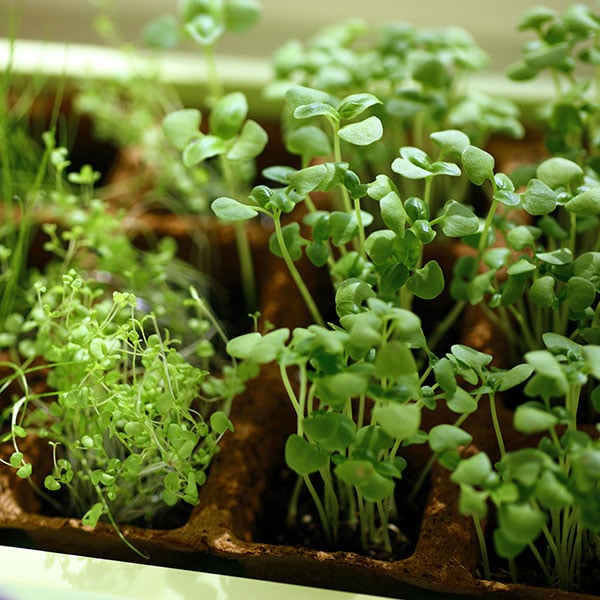
Cultivation: DIY or buying seedlings? – That is the question!
It is a question of willingness and effort, whether you grow yourself herbs from seeds or you buy seedlings. Anyhow, it is important that the plants have enough space for their roots and finally a healthy growth.
– parsley, thyme and chives are in the need of a pot of 20 cm Ø
– lavender and rosemary need an even bigger pot of 30-40 cm Ø
If herbs are cultivated in beds, you should keep distances between 20 resp. 40 cm. For “pot cultivation” preferably choose soils for herbs that not only contain the necessary humus substances, but also guarantee a sufficient air and water circulation due to a high proportion of mineral components. The existing garden soil can be mixed with special soil for herbs in order to get ideal conditions.
By a regular collection, sufficient watering and occasional fertilising, you have already done your part on the very basic plant care.
The fitting herb soil for balcony herbs
As a basis for cultivation of herb seeds or young plants, the suitable herb soil or substrate is an important component. The mixture of the ingredients is essential due to the variety of herbs. For example, Mediterranean plants such as rosemary prefer a nutrient-poor soil with a specified proportion of sand. Whereas parsley and tarragon can also be cultivated in soils of a high humus content. Therefore, when cultivating herbs, you should select both a suitable soil for herbs/potting compost as well as the fitting location.
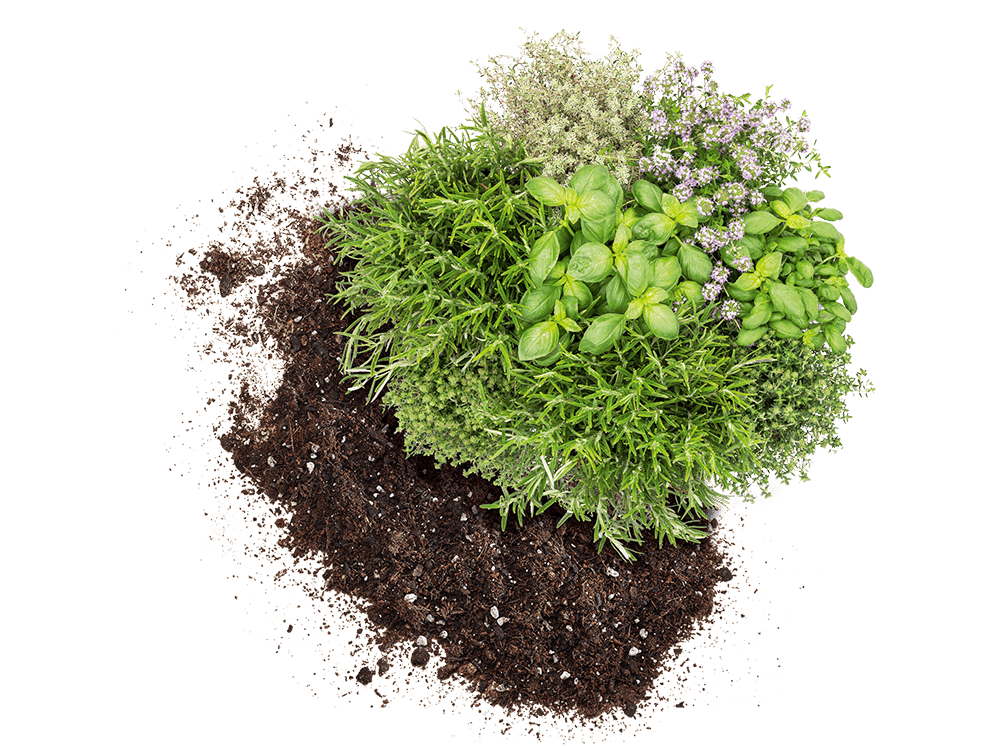
The PROs of a high-quality herb soil
Product recommendations for balcony herbs & cultivation
